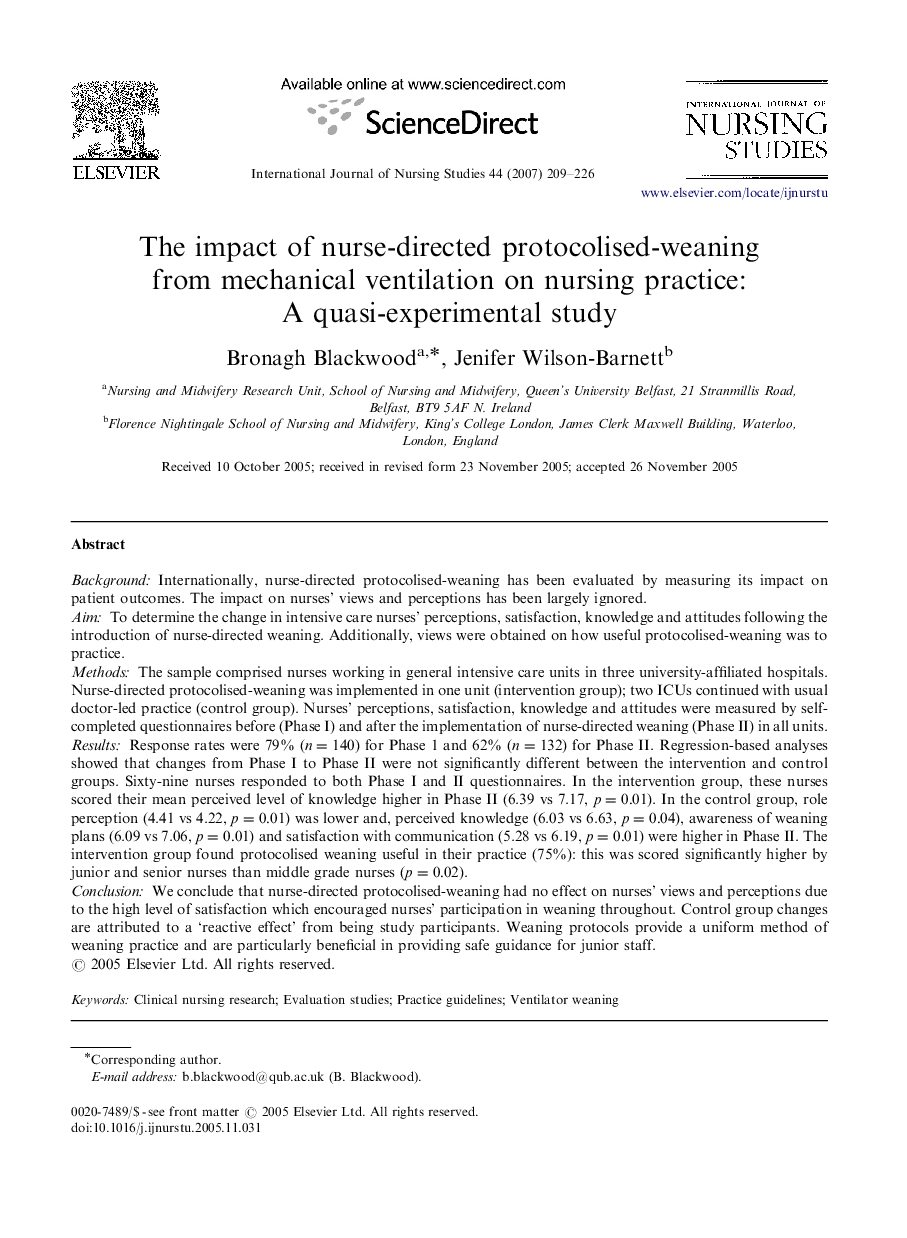| کد مقاله | کد نشریه | سال انتشار | مقاله انگلیسی | نسخه تمام متن |
|---|---|---|---|---|
| 1077854 | 1486619 | 2007 | 18 صفحه PDF | دانلود رایگان |

BackgroundInternationally, nurse-directed protocolised-weaning has been evaluated by measuring its impact on patient outcomes. The impact on nurses’ views and perceptions has been largely ignored.AimTo determine the change in intensive care nurses’ perceptions, satisfaction, knowledge and attitudes following the introduction of nurse-directed weaning. Additionally, views were obtained on how useful protocolised-weaning was to practice.MethodsThe sample comprised nurses working in general intensive care units in three university-affiliated hospitals. Nurse-directed protocolised-weaning was implemented in one unit (intervention group); two ICUs continued with usual doctor-led practice (control group). Nurses’ perceptions, satisfaction, knowledge and attitudes were measured by self-completed questionnaires before (Phase I) and after the implementation of nurse-directed weaning (Phase II) in all units.ResultsResponse rates were 79% (n=140n=140) for Phase 1 and 62% (n=132n=132) for Phase II. Regression-based analyses showed that changes from Phase I to Phase II were not significantly different between the intervention and control groups. Sixty-nine nurses responded to both Phase I and II questionnaires. In the intervention group, these nurses scored their mean perceived level of knowledge higher in Phase II (6.39 vs 7.17, p=0.01p=0.01). In the control group, role perception (4.41 vs 4.22, p=0.01p=0.01) was lower and, perceived knowledge (6.03 vs 6.63, p=0.04p=0.04), awareness of weaning plans (6.09 vs 7.06, p=0.01p=0.01) and satisfaction with communication (5.28 vs 6.19, p=0.01p=0.01) were higher in Phase II. The intervention group found protocolised weaning useful in their practice (75%): this was scored significantly higher by junior and senior nurses than middle grade nurses (p=0.02p=0.02).ConclusionWe conclude that nurse-directed protocolised-weaning had no effect on nurses’ views and perceptions due to the high level of satisfaction which encouraged nurses’ participation in weaning throughout. Control group changes are attributed to a ‘reactive effect’ from being study participants. Weaning protocols provide a uniform method of weaning practice and are particularly beneficial in providing safe guidance for junior staff.
Journal: International Journal of Nursing Studies - Volume 44, Issue 2, February 2007, Pages 209–226